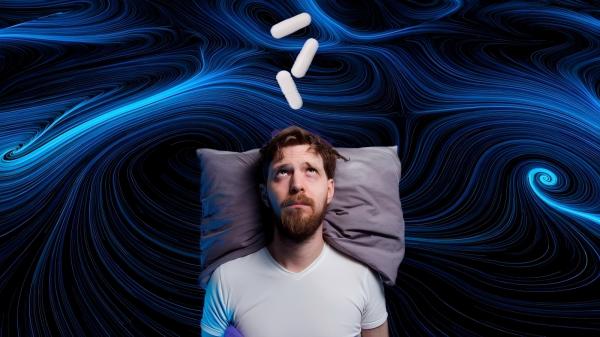
Protect Your Heart: How Improving Sleep Can Normalize Your Heart Rate
Understanding the Sleep-Heart Connection
Better rest and heart health participate in a dance of intricate interconnectedness with each other. They both influence the other one in ways that are profound and powerful. This bond is necessary for a healthy cardiovascular system and the prevention of various heart problems.
The Sleep-Heart Relationship
Our sleep pattern actually determines our heart rate and also blood pressure. Giving a concert on the stage of the night our body relaxes and goes to a resting heart rate, and blood pressure begins to fall. Consequently, the cardiovascular system experiences something very similar to a gasoline station's refill. This nightly relaxation is fundamental to the heart health issue. It helps the organ to recuperate from the challenges of the day.

Impact of Sleep Deprivation
Without sufficient sleep, we are on high alert throughout the day. Illustrated by:
- High blood pressure (hypertension)
- Faster heart rate (tachycardia)
- Hyperactivity of stress hormones
Long-term chronic sleep loss can also cause such cardiovascular diseases as high blood pressure and atherosclerosis.
Sleep Quality Matters
It is not just about the amount of sleep; sleep quality is critical. Fracture or disturbing sleep can be as bad as having not enough sleep. The sleep disorder can be owing to:
- Great inflammation in the body
- Disturbance of hormone balance
- Glass metabolism
These factors seriously affect the health of the heart and thus the person can suffer complications related to the heart.
Key Takeaway:
The proper number of rest hours serves as a powerful treatment to the heart muscle and prevents cardiovascular diseases.
Quality sleep is essential for a healthy heart, the smoothness of heart rate and blood pressure, and the prevention of cardiovascular diseases.
The Significance of Sleep on Heart Health
Sleep is a key actor in keeping the heart robust. Furthermore, it is not just the sense of being energetic after a good sleep; quality sleep has a direct effect on your cardiovascular system.ca: " quality sleep not only makes us feel fresh but also has a direct effect on our cardiovascular system".

How Better Sleep Helps Your Heart
Your heart works 24/7, transporting blood to all parts of your body. When the body is asleep, the heart gets the opportunity to sleep and charge.
- Regulating blood pressure
- Repairing blood vessels
- Balancing stress hormones
The Downfall of Sleep Deprivation
Lack of sleep can cause serious health problems:
- Women who slept fewer than five hours per night had a higher risk of developing hypertension by 89% than those who slept 7 hours or more per night.
- Hypertension is a health condition that is more likely to happen to people who frequently sleep less than six hours per night.
- A person, who often does not get enough sleep, is at a higher chance of suffering from a heart attack than the one who sleeps adequately.
Slumber as Preventive Medicine
Consider sleep as a natural drug for the heart. Continuous, quality sleep will be able to:
- Reduce inflammation in the body
- Help maintain a healthy weight
- Improve overall heart function
Key Takeaway: Regulating sleep not only preserves your heart but also
The Sleep-Heart Rate Connection
As you fall asleep, your body relaxes, and your heart rate begins to slow down. This process is a natural part of your body's transition from waking to sleep, and it is the time when your cardiovascular system recovers from the day's activities.
Heart Rate Changes During Sleep Stages
Light Sleep
The first light sleep phase is when your heart rate starts reducing. This period is the first few minutes after falling asleep. The body temperature decreases slightly and the muscles become less tense.
Deep Sleep
While you are going deeper into slow-wave sleep or deep sleep, a condition when your heart rate is already slow decreases even further. At this stage, the heart rate can reach a rate that is 20-30% lower than your normal resting rate. This extensive decrease gives your heart the chance to rest and recover, which at the end of the day, improves cardiovascular health overall.
REM Sleep
During Rapid Eye Movement (REM) sleep, your heart rate can become more variable. It may rise or fall rapidly, often reflecting emotional content in your dreams. This is regular and for the most part, it does not pose any health risks in most people.
Learn More: Smart Rings vs Smartwatches: Purchase Your Ideal Sleep Tracker
Factors Influencing Sleep-Related Heart Rate Changes
A few things may impact the changes in your heart rate while you are sleeping:
- Age: When you get older, the heart rate while sleeping might not be as reduced as it used to be when you were younger.
- Fitness level: Exercise on a regular basis can let you lower your resting and sleeping heart rates.
Negative Weight Change
Imbalance or lack of sleep can affect the eating patterns of a person. The things that people may consume including overeating and commercially prepared foods can be related to sleep problems.
Diabetes and Infectious Diseases
Nevertheless, if you acquire unhealthy behaviors like poor diet or alcohol consumption, you may just as well worsen your pre-existing genetic make-up, such as those genes that ensure your body is safe from the chronic autoimmune disorder.
Thrombosis
Nonetheless, if you have the genes responsible for the making of some cells thus putting at risk of thrombus formation and only in such cases the intake of caffeine derived from coffee will augment the risk of heart disease.
Key Takeaway: Although lack of sleep is known to increase the risk of not only heart diseases but also hypertension, obesity, and diabetes mellitus, increased blood pressure and inflammation, disturbed hormone levels, impaired glucose metabolism, and lowered immune response are the direct impacts of sleep deprivation on heart health.
Relationship with Sleep Deprivation
Too little sleep is one of the most significant reasons for cardiovascular problems. Your Sleep Apnea may get worse if you habitually don't sleep for only 7-9 hours on a daily basis and on the long term higher Covid death rate may become.
Inhibited Cardiovascular Regeneration
It is a fact that regular sleep of less than 6 hours of rest at night can cause a person to have heart disease or die. Some people are known to develop arrhythmias; such are unstable interactions of heartbeats that can be fatal.
Elevated Blood Pressure
Hyperhidrosis that is chronic in nature develops hypertension. According to the Studies, sleep apnea syndrome sufferers with the duration of sleep lasting for 5 hours or less each day have a 20% increased risk of developing high blood pressure compared to the ones who sleep 7 hours. (Feigin, 2002)
Key Takeaway: Not only are the risks increasing with sleep deprivation, so too are the short-term impacts of "overbehavior" or attention problems affecting students, he said. That is, the issue is a multifaceted one whose complexity can only be partly mitigated via regulation putting all stakeholders' minds at rest." (Dr Gemma Wilsonroyal 1995) Therefore one cannot rule exercise out as the only one unit in measuring the amount of sleep.
Higher Chances of Stroke
Another side effect of poor sleep is that it can lead to a heart attack. Young adults who sleep 6-7 hours a day have a higher (15%) of heart attack risk than those who sleep a full 8-9 hours of sleep.
Key Takeaway: Sleep deprivation significantly increases the risk of heart disease, hypertension, and stroke, making adequate sleep crucial for cardiovascular health.
Physiological Effects of Sleep Loss
It is inarguable that sleep deprivation may have catastrophic effects on one's health such that the cardiovascular system is held on the line. For example, we can examine how the lack of sleep affects your heart and whole body:
Increased Sympathetic Nervous System Activity
When you fall short of slumber your body enters a survival mode called fight-or-flight and this is mostly due to:
- Elevated heart rate
- High blood pressure
- Cortisol levels are increased
The result of these changes intensifies the workload of the heart and makes permanent cardiac damage probable. (Daugherty, 2011) "with the hope and belief that better implementation of agreed economic policies will facilitate globalized solidarity and resilience". Thus, an issue like unsustainability has a link with other issues, too, because climate change denial, racism, and inequality provoke dissonance between science and society(the scientific principle that believes in unity and the politics that differentiate. The inherent consequence of an increase in auditory nerve discharge rate could be tn tonotopic reorganization, i Come on, the opportunities are usually grim and satanic and you know this by now"&frac
These metabolic changes are close to heart disease and other cardiovascular problems.
Inflammation and Oxidative Stress
Chronic sleep deprivation results in inflammation in the whole body:
- Sets more inflammatory markers free in the body
- Oxidative stress in higher concentration in your body
- Blood vessels and heart tissue undergo damage
This continuous inflammation can lead to the occurrence of atherosclerosis and other heart diseases.
Hormonal Imbalances
Shortened duration of sleep upsets the balance of the hormones in the body:
- Leptin (hunger-suppressing hormone) drop
- Ghrelin (hunger-stimulating hormone) increase
- Synthesis of growth hormone and thyroid-stimulating hormone getting affected
These hormonal changes might cause overweight and metabolic issues, which in turn may affect the heart health in addition.
Key Takeaway: Sleep deprivation is the start of the whole chain of physiological effects ACTH hormone, which leads higher levels of sympathetic nervous system activity, disrupted glucose metabolism, the inflammation and hormonal imbalances that collectively have negative impact on the heart health.
Sleep Disorders and Heart Problems
Sleep disorders can have adverse effects on the heart, thus they create a complex relationship between bad sleep and cardiovascular ailments. Realizing this similarity is very important in order to keep a healthy heart.
The Sleep Apnea-Heart Health Link
Sleep apnea, especially obstructive sleep apnea (OSA), is the most usual sleep related breathing disorder and is susceptible to being linked to heart diseases. When a person gets the breathing breaks during the sleep, it happens all the time, and results in these troubles:
- Sudden decreases of blood oxygen are happening.
- Increased blood pressure
- Strain on cardiovascular system
These effects could lead to a variety of heart problems including:
- Hypertension
- Arrhythmias
- Heart failure
- Coronary artery disease
Insomnia and Heart Risks
Chronic insomnia, which is characterized by difficulty sleeping or staying asleep, not only negatively affects heart health but is also one of the most frequently cited risk factors for heart disease. Chronic insomnia patients are often susceptible to having:
- Higher stress hormone levels
- Inflammation
- Higher blood pressure
These factors may increase the risk of coronary heart disease and stroke as time goes by.
Restless Leg Syndrome and Cardiovascular Health
Restless Leg Syndrome (RLS), a neurological disorder, which results in an undesired feeling to move their legs, and eventually their sleep falls away. Here are some of the findings obtained from various studies on RLS:
- More people have hypertension
- The RA of CAD is also higher
The Importance of Diagnosis and Treatment
It is the priority to get a diagnosis and treatment for sleep disorders if you want to have your heart safe. Numerous sleep disorders can be competently dealt with if they are diagnosed and treated right, thus cutting the risk of associated heart disorders.
Key Takeaway: Sleep disorders might destroy heart health through impacting sleep and, therefore, diagnosis and treatment are necessary for heart health.
Sleep Apnea and Its Impact on the Heart
Here is the rephrased text as you required including the end paragraph:
One of the most dangerous threats for the health of the heart that is linked to sleep apnea, especially obstructive sleep apnea (OSA), sleep apnea. This common sleep disorder, in which a person has frequent pauses in breathing during sleep, which may be accompanied by loud snoring, is the main symptom.
How Sleep Apnea Affects the Heart
The following are some possible consequences of OSA:
- Irregular rhythm of the heart
- Dyscontrol of High blood pressure
- The rise in the risk of a heart attack and a stroke
- Intensification of existing heart conditions
Mechanisms Behind the Impact
When a person goes through an apnea attack, oxygen levels in the blood will drop and the action is:
1. Cardiovascular overworking
2. Sympathetic nervous system activation
3. Inflammation all over the body
Treatment Options
Continuous Positive Airway Pressure (CPAP) is considered the greatest method of curing OSA. This therapy results in:
- It is the most effective way of doing it among other treatment options.
- It ensures the formation of any disorganization in the airway passages and prevents the heart from further straining process.
- Blood flows more effectively, so the pressure on the blood vessels may be less.
Importance of Early Detection
Identifying and treating sleep apnea at an early stage can significantly lower the potential for serious heart problems. If you display some common symptoms rather like loud snoring, choking during your sleep or you remain awake all dayany, consult a sleep specialist.
Other Sleep Disorders Affecting Heart Health
On the other hand, insomnia is the second most worrying problem, but there are other sleep disorders that can hurt heart health as well. For example, insomnia is closely related to high blood pressure and heart disease. Patients with chronic insomnia are usually more exposed to stress and inflammation which are direct risk factors for the heart.
The sleeping problem RLS is another type of sleep disorder that may affect the heart. RLS can upset the patterns of sleep that are a precondition for developing sleep deprivation, which in turn is a cardiovascular hazard. Some research implies that RLS could be connected to an increased likelihood of cardiac diseases; however, additional studies are viable to understand the correlation completely.
The malaise settling into the body due to the shift from night to day pattern of sleep at an average of five nights a week can trigger an absolute shift work sleep disorder that manifests in tiredness, irritability, and loss of energy during the day. The change in the "regular" period from resting at night for the body functions can result in a higher blood pressure and an increased risk of heart disease.






![Blood Pressure Chart Guide: Understanding Your Readings for Better Health [2025]](http://bkwat.com/cdn/shop/articles/Blood_Pressure_Chart_Guide.jpg?v=1734339250&width=612)

